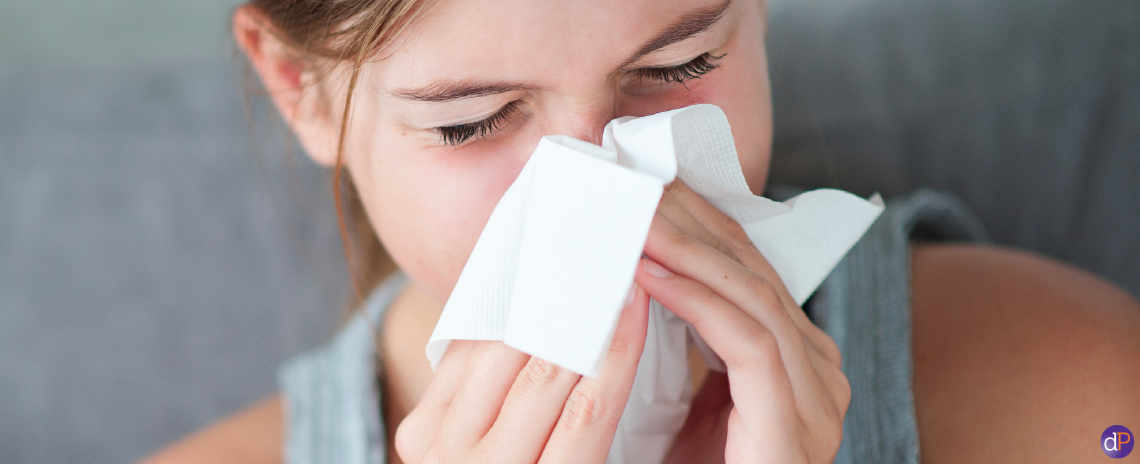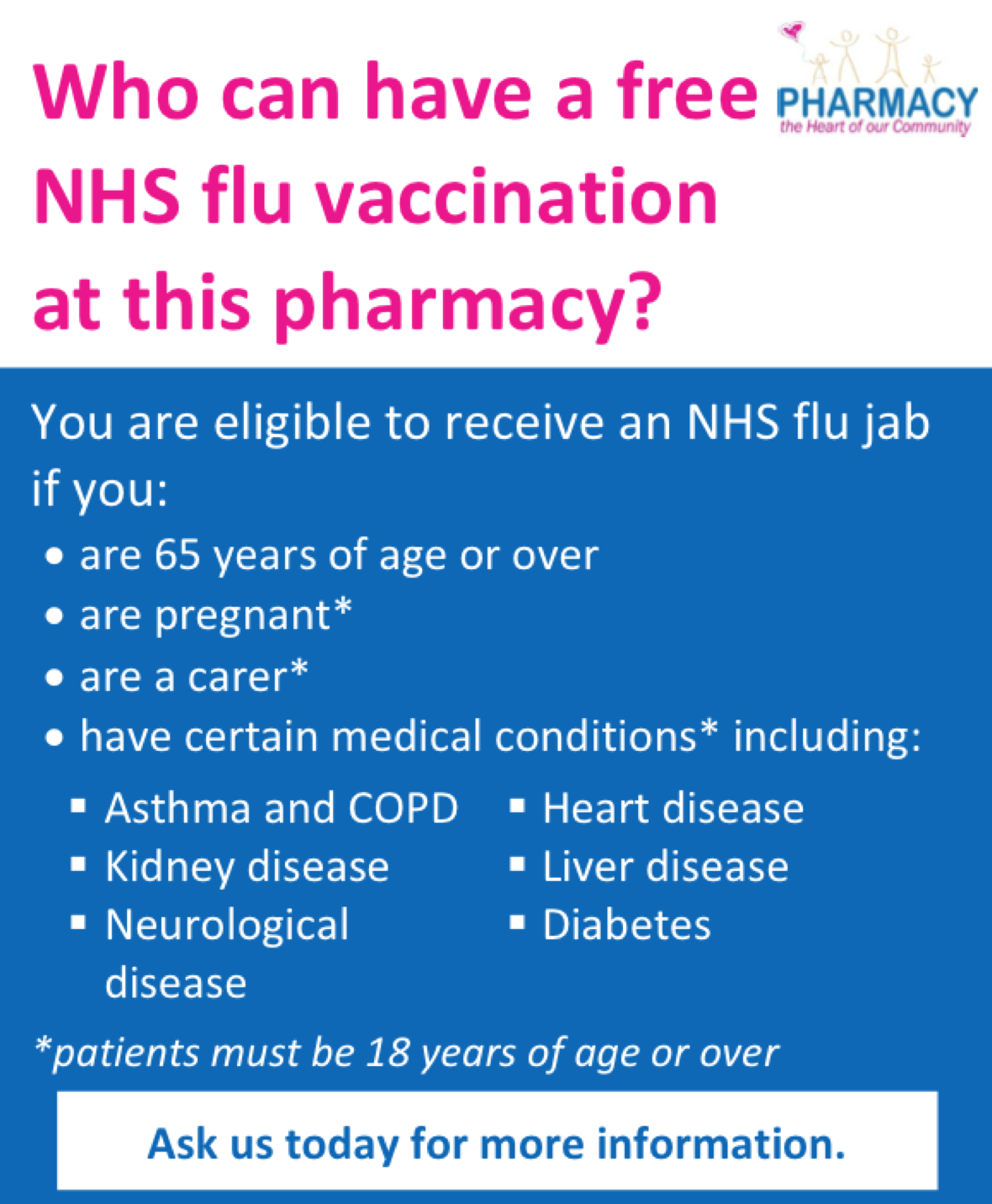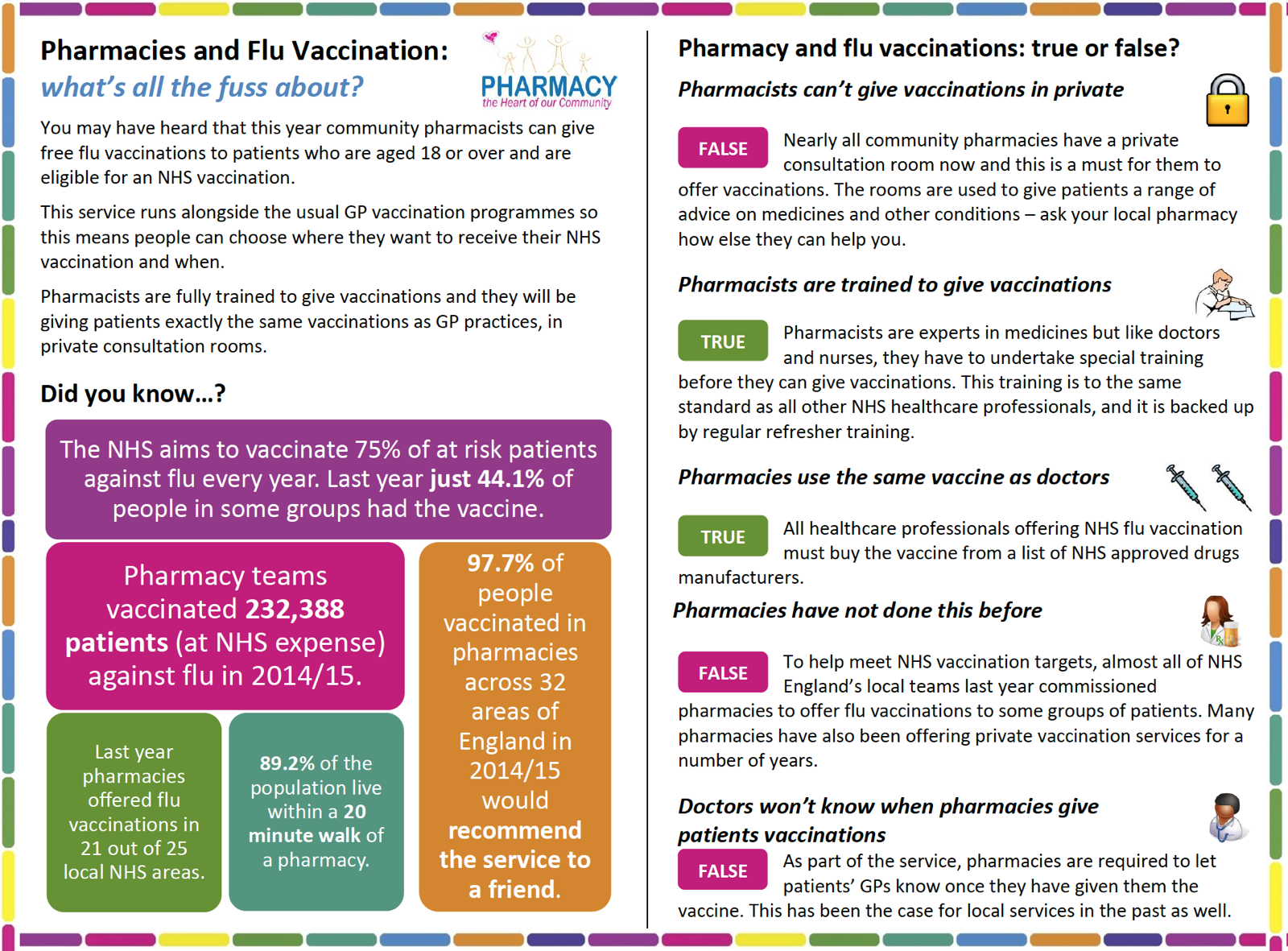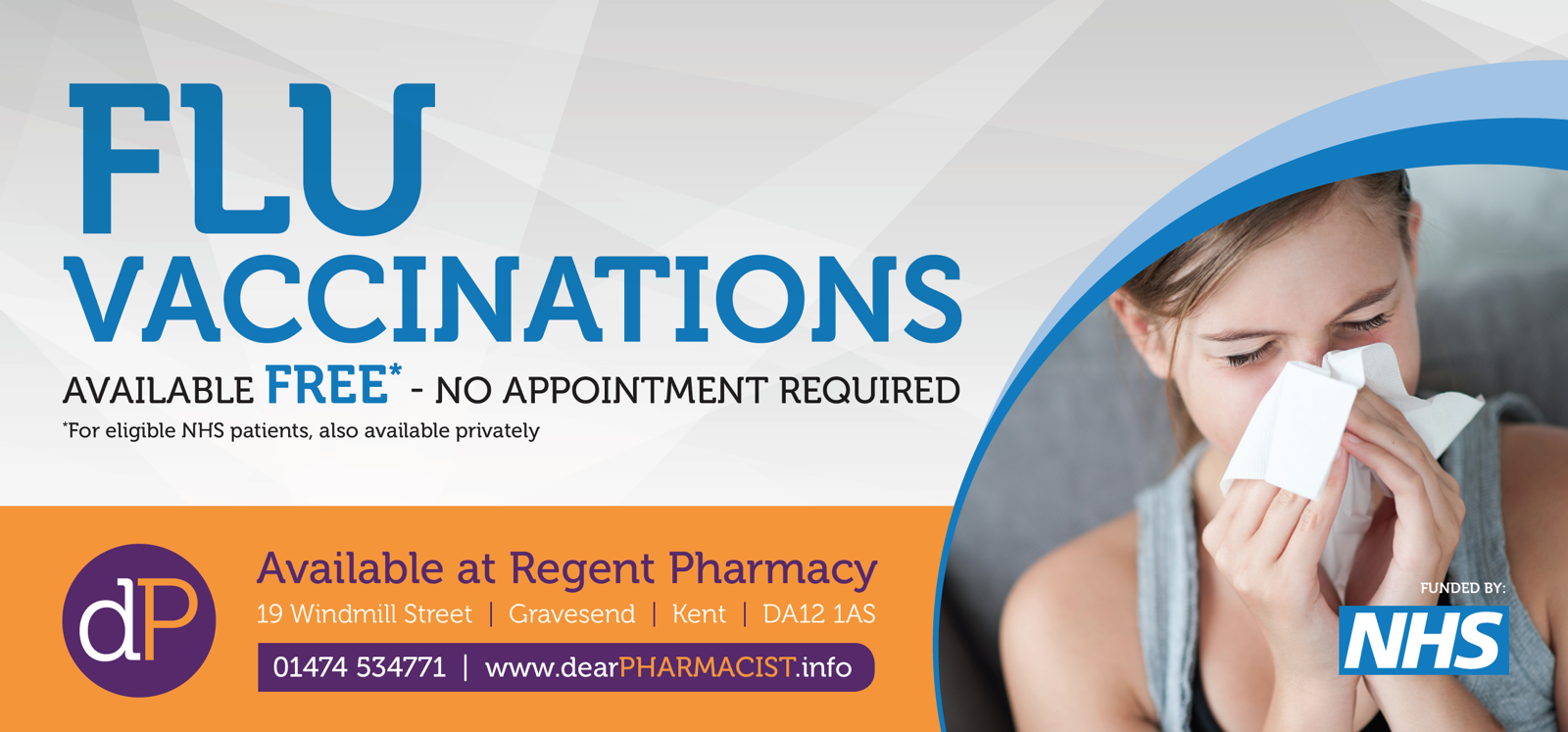Services

Don’t wait until there is a flu outbreak this winter, get your free flu jab now.
You could be eligible to receive the Flu Jab FREE by dearPHARMACIST (funded by NHS)
If you fall into one of the clinical risk groups who are advised to have the flu jab, dearPHARMACIST may be able to provide a free NHS jab (without a referral from your GP) if you are 18 years or over at the time of vaccination, registered with a GP in England or Wales and you:
Criteria for a FREE Flu Jab:
- Are aged 65 and over (or will turn 65 by 31 March 2024)
- Are pregnant
- Have a certain medical condition* such as diabetes or heart disease
- Care** for someone whose welfare may be at risk if you fall ill

Certain medical conditions include*:
- Diabetes
- Lung disease, including asthma if you're on a preventer inhaler
- Heart disease
- Kidney disease
- Liver disease
- Lowered immunity due to disease (e.g. HIV) or treatment (e.g. steroid medication or cancer treatment) or you have had your spleen removed
- Neurological disease
Carer status may include**:
- People who are in receipt of a carer's allowance
- Those who are the main carer for an elderly or disabled person
If you don’t fall within the FREE status, don’t worry. You can still get vaccinated by dearPHARMACIST privately; conditions apply.
The price will be £14.99 per Flu Jab.

What to expect
Want to know what to expect when you go for your flu vaccination? What about the more common side effects you might experience? Before your flu vaccine
Firstly, read through this list of questions:
- Have you ever had a reaction to a flu vaccination in the past?
- Are you feeling unwell at the moment and/or do you have a raised temperature?
- Are you allergic to hens’ eggs?
- Are you allergic to antibiotics?
- Are you breast-feeding?
If you’ve answered ‘YES’ to any of the above questions, tell your Pharmacist before you have your flu vaccination.
After your flu vaccine
Most people do not experience any complications or symptoms following flu vaccine. However, like all medicines, flu vaccination can cause side effects in some people. During clinical trials, the following side effects have been seen and classed as common because it is estimated that they affect between 1 in 10 and 1 in 100 people who receive a flu vaccination:
- Headache
- Sweating
- Muscle pain, joint pain
- Fever, generally feeling unwell, shivering, tiredness
- Local reactions: redness, swelling, pain, bruising, hardness around the area where the vaccine is injected
These reactions usually disappear within 1-2 days without treatment. For details of further, less common side effects, please click here. But do tell your Pharmacist, Practice Nurse or Doctor at once about any symptoms that cause you concern.
Reporting of side effects
If you get any side effects, talk to your doctor, pharmacist or nurse. This includes any possible side effects not listed in the package leaflet. You can also report side effects directly via the Yellow Card Scheme at www.mhra.gov.uk/yellowcard.
By reporting side effects you can help provide more information on the safety of this medicine.
Once you have had the vaccination, your body will build up protection in 2-3 weeks against the flu strains in the vaccine.
And finally, remember:
Inactivated, injectable flu vaccines contain killed viruses, and therefore you can’t catch flu from these vaccines!
Flu vs Cold Symptom Checker
Flu or cold?
The common cold and flu are both caused by infections in our throat and lungs and share many of the same symptoms. It’s not always easy to tell whether you have flu or just a cold. Flu can be serious and at times life-threatening, whilst the common cold is likely just to cause you to feel unwell for a few days.
In general, flu symptoms are worse than cold symptoms.
If you have a cold
- You feel generally under the weather for a few days before your symptoms develop
- You have a variety of symptoms but they are generally mild
- You probably have a blocked or runny nose, a sore throat and maybe even a mild cough
- Your temperature may be a little high making you feel shivery
- Although you feel unwell, you can do most of your normal daily activities like going to work, driving, shopping and cooking
If you have flu
- You can suddenly feel very ill or unwell
- Your symptoms are generally more severe than with a cold
- You may or may not have a blocked or runny nose or a sore throat
- Your temperature is high, you have chills and your muscles ache
- You feel exhausted, you are unable to carry out basic daily tasks and will probably have to go to bed
To help you decide whether you may have flu or a cold, follow the link below to the symptom checker available on the NHS Choices website:









